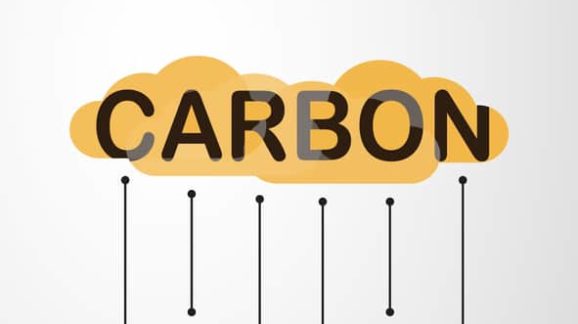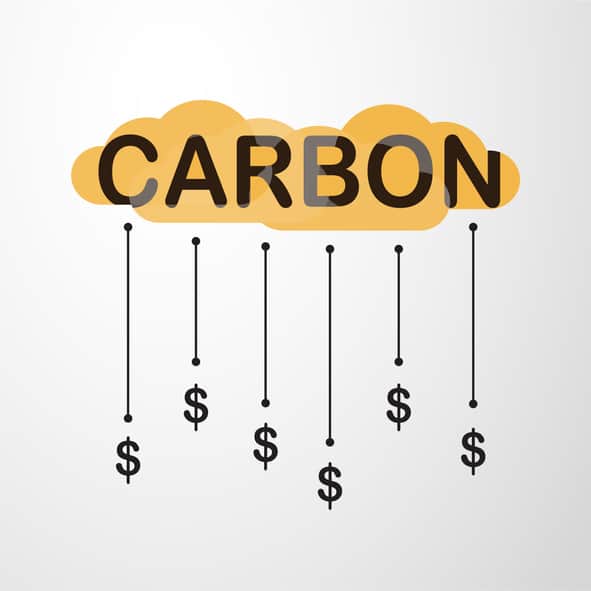Conservative Carbon Tax: Bad Politics, Bad Policy

Photo Credit: Getty
 A recent article in National Review suggests conservative politicians would be smart to advocate a carbon tax, enabling them to show they care about the planet while offering an alternative to the growth-chilling mandates beloved of the climate left. That is naive.
A recent article in National Review suggests conservative politicians would be smart to advocate a carbon tax, enabling them to show they care about the planet while offering an alternative to the growth-chilling mandates beloved of the climate left. That is naive.
Conservatives are pro-growth; hence, pro-energy and anti-tax. Progressives are anti-growth, hence, pro-tax and anti-energy. Touting carbon taxes would blur a basic distinction that is a critical political asset for conservatives.
My main concern here, though, is not that a carbon tax is bad conservative politics but that it is bad public policy.
No chamber of Congress has ever passed a carbon tax, and for good reason. A carbon tax is a market-rigging policy, not a free market one. A carbon tax by design raises the cost of energy. Making energy less affordable diminishes economic growth, household income, and consumer purchasing power.
Most current proposals feature “fee-and-dividend” programs and suspend certain Clean Air Act (CAA) regulations. However, no enacted carbon tax would be “revenue neutral,” and even if it were, the tax would still be economically harmful. Nor would a carbon tax be deregulatory. Indeed, carbon pricing would expand federal regulation due to its inevitable pairing with a system of border taxes.
Finally, costs would far exceed benefits because even the most aggressive politically feasible tax would have no discernible impact on climate change risks.
Not Free Market. A carbon tax uses prices rather than mandates to reduce emissions. However, that does not make it a free market policy. Cap-and-trade programs and renewable energy quota are just implicit carbon taxes. All such policies pick energy market winners and losers. As President Obama put it, the point of pricing carbon is to “finally make renewable energy the profitable kind of energy in America.”
Not Revenue Neutral. Most carbon tax bills include “fee and dividend” programs rebating a portion of the revenues to American households. However, given Washington’s spending ambitions, no enacted carbon tax would ever reduce other taxes by an amount equal to expected revenues. Inevitably, substantial revenues would be used to fund “investments” in infrastructure, “green jobs,” or other political priorities.
Besides, returning revenues to households on a pro-rata basis would not incentivize work or investment. It would simply empower government to play Santa Claus with new pots of tax dollars. Fee-and-dividend is just a “share the wealth” scheme in green garb.
Economically Harmful. Even if the carbon tax were revenue neutral, it would still be economically damaging. The smaller the base on which a tax of a given size is levied, the more harmful the impacts on investment, employment, and consumer prices. For example, imposing a $100 billion tax on movie ticket sales would destroy many more businesses and jobs than would a $100 billion hike in federal income taxes.
The base for a carbon tax—a set of specific commodities and companies—is narrower than the base for income taxes. Thus, a fee-and-dividend program would still hamper economic growth. In a recent study, Capitol Alpha Partners examines a carbon tax that starts at either $40 or $49 per ton and increases by 2 percent annually. The study finds that offsetting those taxes with lump sum rebates to households results in “lost GDP equal to between $3.76 trillion and $5.92 trillion over the 22-year forecast period.”
Illusory Deregulation. A grand bargain in which conservatives and progressives agree to tax carbon and deregulate energy is a fairy tale. Several recent carbon tax bills (H.R. 763, H.R. 3966, H.R. 4058, H.R. 4520) would suspend greenhouse gas regulations under Clean Air Act (CAA) sections 202, 211, 213, and 231. Those provisions deal solely with motor vehicle engines and fuels. Thus, the U.S. Environmental Protection Agency (EPA) would remain free to revive the so-called Clean Power Plan, or even to establish national ambient air quality standards (NAAQS) for greenhouse gases.
In addition, the bills require the EPA to impose regulations in 2030 if the agency finds that the suspended provisions would have achieved larger emission reductions than the carbon tax. Most tellingly, the bills direct the EPA to “grant a waiver under CAA section 209(b).” Thus, the bills do not even temporarily suspend regulation of motor vehicle greenhouse gas emissions but rather transfer that power to the California Air Resources Board. Unsurprisingly, no carbon tax bill introduced in the 116th Congress would preempt any state-level climate policies.
More Regulation, Not Less. To prevent carbon taxes from creating “unfair” trade advantages for foreign producers, most proposals impose “border taxes” (carbon tariffs) on goods imported from countries lacking equivalent climate policies. However, estimating the carbon intensity of goods in trade is more complex than proponents usually acknowledge.
Many jurisdictions with climate policies do not rely chiefly on carbon taxes. Establishing carbon price equivalencies among heterogenous policies and enforcement regimes would be daunting. Moreover, variations in regional, local, and even company-specific production processes may yield different carbon intensities unrelated to differences in national policies. Setting “fair” carbon tariffs is likely to be a subjective, and thus contentious process.
The difficulties in estimating carbon intensities in real time are compounded by the international supply chain phenomenon. A product imported into U.S. markets may incorporate inputs and value additions from firms in several countries operating under diverse climate policies. Moreover, supply chains can change rapidly, as has often happened during the COVID-19 pandemic.
Thus, as American Enterprise Institute Benjamin Zycher observes, something like a greatly expanded—or new—IRS would be needed to develop, administer, and audit compliance with new rules for estimating and reporting carbon intensities, and to prosecute companies suspected of border tax evasion or under-payment. In short, enacting a carbon tax would saddle U.S. businesses with a massive new regime of intrusive regulation.
Pain for No Gain. All the economic and regulatory pain would produce no detectable effects on weather patterns, crop yields, or any other environmental condition people care about. Even a carbon tax that eliminates all U.S. CO2 emissions would avert only 0.137°C of global warming by 2100, according to standard EPA climate modeling. Any politically feasible carbon tax would achieve significantly less, especially over the next 30 years.
Do No Harm. Chief Justice John Marshall famously observed that “the power to tax involves the power to destroy.” That is especially true of carbon taxes, which in most proposals increase, year after year, through 2030 or even 2050. Unlike income or payroll taxes, a carbon tax is designed to tax away the base on which it is levied.
Any such premeditated assault on industries providing affordable, reliable energy to the American people is what CEI calls a “never needed” policy. Enacting a carbon tax now, as America struggles to reopen for business, would be exceedingly unwise.